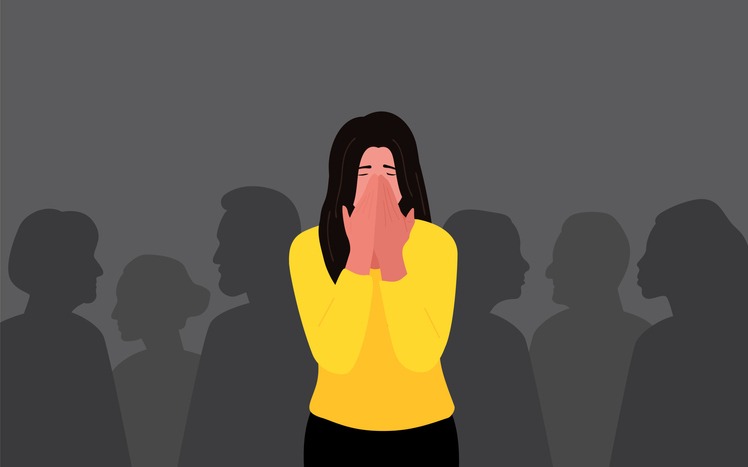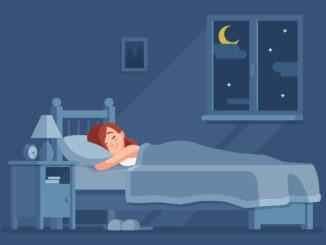
Rather than something to be suppressed and ‘solved’, anxious feelings can be a critical indicator of powerful intuition – Dr Ellen Vora shares her positive affirmations for anxiety
CREDIT: This is an edited version of an article that originally appeared on Psychologies
Even when we eliminate coffee and prioritise sleep, a certain level of anxiety tends to persist. This anxiety stems from the inherent vulnerability of life, yet it also bestows upon us the power of our convictions. When our lives deviate from our values or capabilities, this unease can arise. However, this sensation can also serve as a crucial indicator that a course correction is needed.
You might be overlooking disparities in your relationship or finding yourself in a job that fit when you were younger but now feels like a wrong turn. Alternatively, you might be unable to ignore the escalating climate crisis. Irrespective of the issue, this unease is your body’s way of signalling, “Pay attention to this.”
When you listen attentively, this anxiety can guide you towards necessary actions and uncover the unique contribution you’re meant to make. Over time, this discomfort can transform into a sense of purpose, which I refer to as genuine anxiety.
Dr Ellen Vora advises her patients to embrace these feelings instead of attempting to suppress or evade them. Rather than asking, “How can I quell this anxiety?” we should be asking, “What is my anxiety conveying?” The reflexive tendency to resist this uncomfortable feeling is only natural.
Culturally, we’ve been conditioned to perceive anxiety as an annoyance to be subdued. However, by doing so, we might overlook valuable guidance. What if you could tolerate your anxiety long enough to discern the necessary change? What if you could alter the circumstances causing your anxiety? What if, instead of dreading and combating genuine anxiety, you invited it in to hear its message? Perhaps you’ve been subconsciously avoiding something painful, or maybe you haven’t paused enough to let it surface—yet, deep within you, there has always been an awareness of your fundamental truth.
The term “essential truth” has become somewhat clichéd lately, often recited to the point of sounding hollow. However, for Dr Vora, it signifies an innate instinct that, when ignored for too long, manifests as mental discomfort—a discomfort that conveys something of utmost importance.
The optimal way to hear the murmur of your intuition is by becoming still and tranquil. Over time, it will supersede the nagging anxieties and persistent chatter in your mind. As you become acquainted with this more resonant anxiety, you’ll also sense it in your body. Warmth or a sensation of expansion often signifies agreement with your gut feeling, while contraction or tightness might indicate that your true anxiety still hasn’t been fully acknowledged.
True anxiety and intuition typically manifest as more substantial sensations. “My anxiety is intense, like a shaky hovering, a high frequency… it’s buzzing,” noted bestselling author and activist Glennon Doyle, describing the contrast between her own fear and intuition. “But beneath it, there’s something weightier, more grounded, stable—something I know. At 45 years old, I can differentiate.”
For many of Dr. Vora’s patients, just as life starts to get easier, they advance to a more complex set of challenges, reaching a stage where they feel out of place in familiar surroundings. As you become more adept at using genuine anxiety as a guide, life may become more demanding and even excruciating at times.
“It’s like shedding defences that once alleviated one layer of anxiety,” shared my patient Ethan. “I’m losing armour as I confront the monster.”
In Ethan’s case, the monster represented childhood trauma, which he eventually confronted and released. Trauma occupies a unique space within the true and false anxiety paradigm—it resides at the intersection of both.
Traumatic experiences often embed themselves in the body, as noted by psychiatrist and bestselling author Bessel van der Kolk, MD, in “The Body Keeps the Score.” This, in turn, reshapes the brain. The amygdala, responsible for the fear response, can be left in a hyperaroused state due to trauma, leading to disproportionate anxiety throughout life.
Trauma—from various experiences like sexual assault, combat, or emotional neglect—keeps the brain on high alert, even if the threat no longer exists. This false anxiety aspect results from the brain misinterpreting danger where there is none. However, trauma should be treated as true anxiety, as the bodily changes were adaptations to an unsafe environment, and the vigilant amygdala seeks reconnection with the trauma for relative resolution.
Like trauma, true anxiety is often rooted in a larger historical context. A single episode of anxiety can encapsulate decades of past experiences, or even longer. Many patients I’ve worked with have unravelled the traumas of past generations that continue to impact their lives, while also uncovering lingering true anxiety from the past.
Truth can be overwhelming, destabilising. Yet, as humans who dare to experience the full spectrum of emotions, we bear this responsibility. It’s how we grow as individuals, align with our purpose, and guide each other forward.
If you belong to the more perceptive, anxious subset of humanity, if your nervous system is finely tuned, the community owes you support and gratitude. In many ways, your anxiety exists to protect us all. Instead of urging the anxious to “toughen up,” we should heed their insights. As each of us embraces genuine anxiety, we become more valuable contributors to our world.
True anxiety doesn’t merely steer us on a personal journey—it assigns us a greater mission. It can position us at the forefront, alerting others to potential threats beyond their immediate perception. The collective voice of genuine anxiety guides society in the right direction.
Furthermore, objectively speaking, the world needs change. We’re undergoing a necessary reckoning. The Me Too movement has exposed sexual harassment and assault, Black Lives Matter has initiated overdue dialogues on centuries of injustice, and climate change activists are sounding the alarm before it’s too late. We must shift from pathologising and suppressing anxiety to heeding its urgent messages. We must listen to those attuned to the subtle—and not-so-subtle—dangers on the horizon. They serve as our prophets, and they just might awaken us all in time.



Be the first to comment